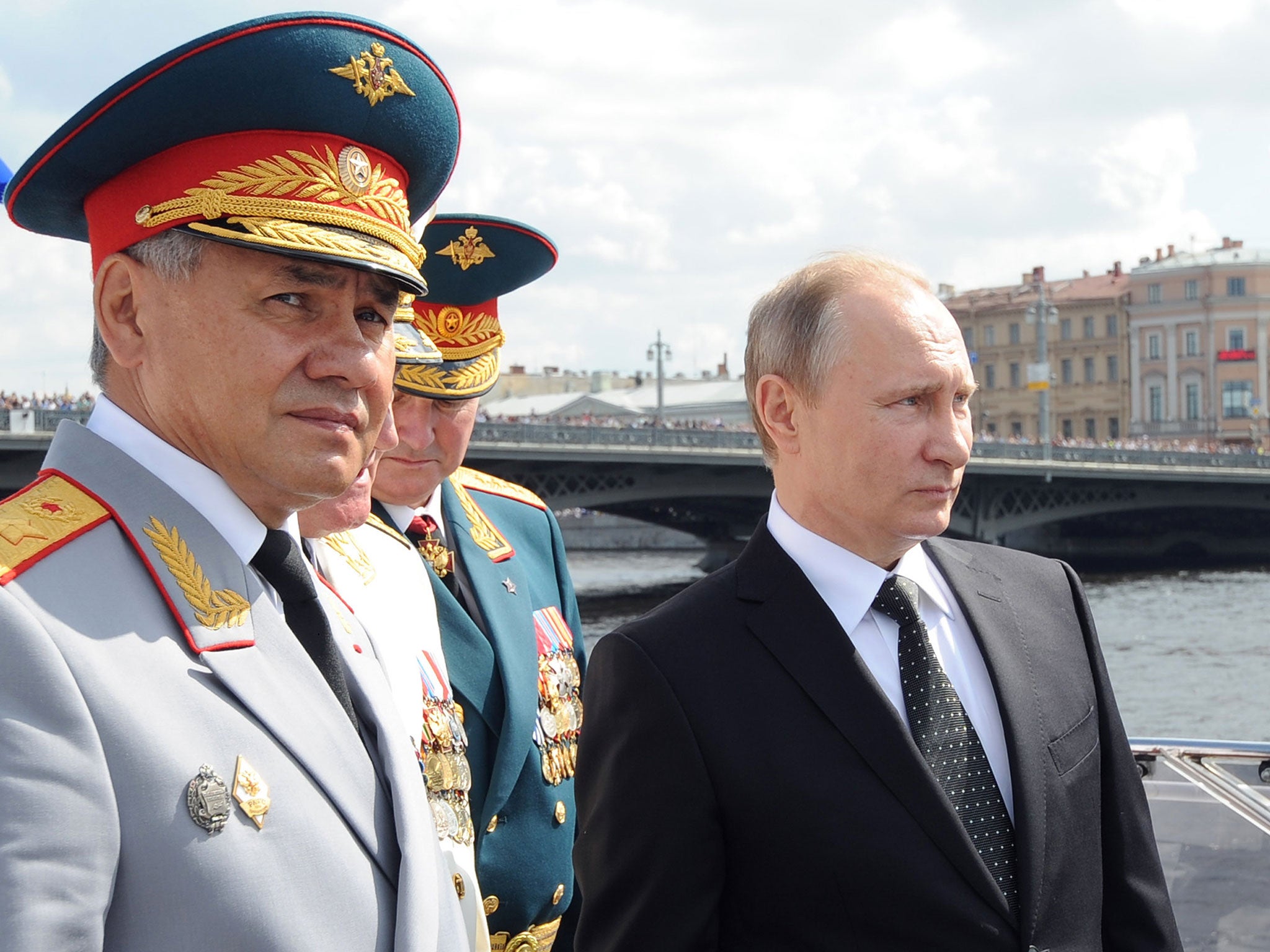Russian defence minister tells UK it cannot 'tell our bear what to do'
Attack comes after Defence Secretary tells Russia not to ‘stick its paws’ into Libyan war

Your support helps us to tell the story
From reproductive rights to climate change to Big Tech, The Independent is on the ground when the story is developing. Whether it's investigating the financials of Elon Musk's pro-Trump PAC or producing our latest documentary, 'The A Word', which shines a light on the American women fighting for reproductive rights, we know how important it is to parse out the facts from the messaging.
At such a critical moment in US history, we need reporters on the ground. Your donation allows us to keep sending journalists to speak to both sides of the story.
The Independent is trusted by Americans across the entire political spectrum. And unlike many other quality news outlets, we choose not to lock Americans out of our reporting and analysis with paywalls. We believe quality journalism should be available to everyone, paid for by those who can afford it.
Your support makes all the difference.Russia’s defence minister has told the UK to stop interfering in its foreign policy amid concern over the Kremlin’s overtures to a Libyan warlord.
Sir Michael Fallon had criticised talks held between Sergey Shoygu and Libyan National Army commander Khalifa Haftar, warning against Russian interference in the ongoing civil war.
“We don’t need the bear sticking his paws in,” the Defence Secretary said ahead of the Munich Security Conference last week.
Mr Shoygu attacked his counterpart’s remarks in a speech at the Moscow State Institute of International Relations.
“What is on [Britain’s] coat of arms, a lion, isn’t it?” he asked, according to a translation by state media.
“There is an old saying: every lion is a cat, but not every cat is a lion. Everyone should deal with their affairs.
“We do not think that there is an animal in their zoo that can tell a bear what to do.”
The Russian minister also vowed that Vladimir Putin’s forces would continue developing their nuclear capability as a top priority, while expanding conventional missiles tested in the Syrian war as a non-nuclear deterrent.
General Haftar visited Moscow twice last year and was invited on to Russia’s Admiral Kuznetsov aircraft carrier as it returned from waters off the coast of Syria in January, holding a video conference with Mr Shoygu on board.
The Kremlin said the pair discussed “fighting against terrorism in the Middle East”, adding that Russia had sent medical supplies to General Haftar’s forces.
Sir Michael claimed the conference call had been largely symbolic but warned that Mr Putin was “testing” Nato and urged Prime Minister Fayez al-Sarraj’s government to reach out to General Haftar’s supporters in eastern Libya.
General Haftar, a 73-year-old veteran, served in the Libyan army under Muammar Gaddafi before fighting to oust the dictator in 2011 and has since been locked in a power struggle with the country’s multiple governments.
In December 2015, the Council of Deputies in Tobruk and the rival Tripoli-based General National Congress agreed to create the Government of National Accord (GNA), to form the Presidency Council and to end political deadlock.
But General Haftar has refused to support the UN-backed GNA, leading critics to accuse him of worsening the prospect of stability in Libya while aiming to consolidate his own power.
He has the backing of Egypt and the UAE but was shunned by Barack Obama’s administration. Donald Trump’s position remains unclear.
Widespread conflict and lawlessness in Libya has allowed the country to be carved up by countless armed militias including Isis, which uses the country as a training base for fighters in the Middle East and terror attacks abroad.
The continuing war has allowed smugglers to launch boats carrying hundreds of thousands of refugees to Europe from the country’s northern coast, prompting growing cooperation between the EU and GNA to stem the flow.
Britain is among the countries training the Libyan coastguard, while giving millions of pounds worth of aid, and Nato has received a request from the Libyan government for support.
Join our commenting forum
Join thought-provoking conversations, follow other Independent readers and see their replies
Comments